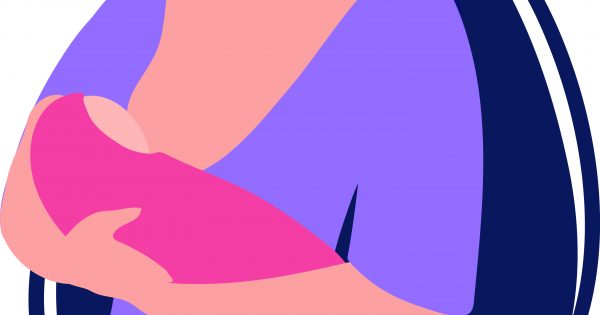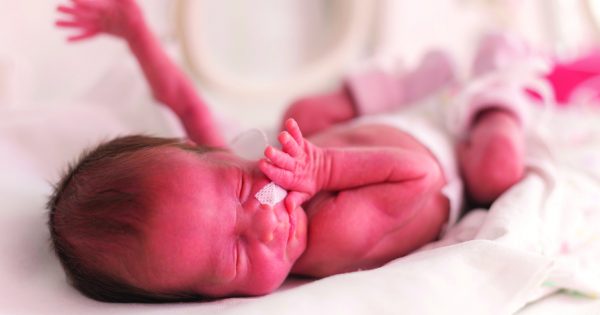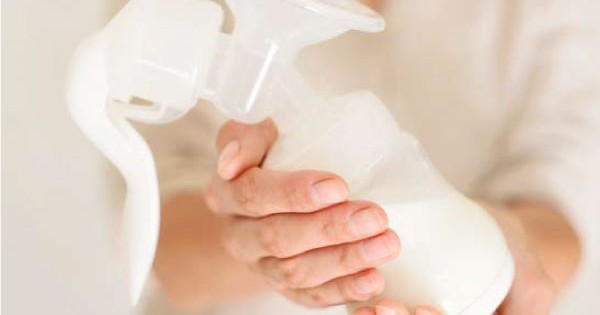Unnecessary restrictions on what mothers can or cannot eat compels many of them to give up on breastfeeding early. Here are some FAQs of breastfeeding moms about their diet and how it affects their breast milk.
Is it true that nutrients from my diet transfers to my child when I breastfeed?
It is true; after all, breast milk is made out of the perfect combination of proteins, fats, vitamins, and carbohydrates from your body. However, the quality of breast milk generally stays the same regardless of what you consume. The most important thing is for mothers to eat a balanced and nutritious diet throughout breastfeeding – and beyond.
What about coffee or alcohol?
There are situations when something the mother eats/drinks may affect the baby. Coffee and alcohol in large amounts for example, have been reported to affect the baby’s health. However, moderate caffeine intake as well as limited alcohol should be relatively safe. The amount you consume should also consider the baby’s age – the younger your baby, the less you should consume.
How much is allowed?
Caffeine: 2–3 cups per day
Alcohol: 0.5 g alcohol per kg of mother’s total body weight
Important Note – Avoiding alcohol altogether when breastfeeding is the safest option for your baby.
Remember that caffeine can accumulate in your child and it is also present in chocolate, tea and carbonated drinks, so, those should count too. Effects to the baby can be further minimised if you have your coffee or alcohol just after breastfeeding the baby or just before the baby is due to have a lengthy sleep period of two hours or more.
What about gassy or spicy foods? Shouldn’t these be avoided?
One principle to hold on to is that you should not exclude any specific food items from your usual diet unless instructed to by a doctor or medical expert. Most of the time when a baby cries because of colic or gas, it is caused by poor breastfeeding position and/or latching techniques. Furthermore, there is no scientific evidence to suggest gassy or spicy foods affect breast milk.
How much more calories should I add to my diet while breastfeeding?
Lactating mothers have an increased daily energy need of 450-500 kcal/day which can be met by increasing calorie intake correspondingly. The actual amount of extra calories consumed should be in direct proportion to the amount of milk you produce. You should also continue to practice a balanced and nutritiously-varied diet.
Are there any foods that nursing mothers should avoid?
Focus on making healthy choices that are balanced, moderately portioned and full of variety. Healthy lactating mothers do not need to avoid any particular type of food unless they suspect the item is causing fussiness, irritation or other symptoms of an allergic reaction in the baby. If that is the case, you can temporarily avoid the food/drink for up to a week, to see if it makes a difference to your baby’s behaviour. If it does, consult a doctor immediately; and if it does not, add the item back into your diet.
To help doctors investigate the cause – if any – you should keep a food diary that lists everything you eat and drink, along with notes about how your baby reacts to them.
Will avoiding foods that are yellow-coloured prevent jaundice in babies?
No, there is no correlation between the two. Jaundice occurs because the baby’s blood contains an excess of bilirubin. Bilirubin is a chemical produced during the normal breakdown of old red blood cells in the liver and, is not present in breast milk. Babies have more bilirubin because they naturally have extra red blood cells and their young livers cannot metabolise bilirubin as efficiently.
More than 60% of all babies have jaundice but it typically goes away soon after birth, because breastfeeding will increase a baby’s bowel movements, which in turn, helps remove bilirubin from the body.
Eat all the bananas and sweetcorn you want, just do not overdo it – not because it will cause jaundice, but because too much of ANY food is not good for general health and well-being.
Will drinking milk increase my breast milk supply?
No, it will not. Milk supply is influenced by many things, but most importantly it depends on the frequency of breastfeeding and how well the breast is emptied. The hormone, prolactin, is produced every time you breastfeed and/or empty out your breast milk in order to stimulate more milk production.
Therefore, to increase breast milk supply you can:
- Breastfeed more often.
- Feed your baby on demand.
- Breastfeed for longer periods at each feeding or until your baby is satisfied.
- Feed on one breast until it is empty, before changing to the other side.
Are vegan mothers able to provide all the nutrition their babies need?
Overall, breastfeeding vegan mothers can supply the baby with all the required nutrients it needs. However, vegetarian diets that contain no animal protein may require DHA and vitamin B12 supplementation or foods fortified with DHA or B12 (e.g. selected breakfast cereals, soy milk and soy products). Both DHA and B12 are important nutritional components a baby needs for development, the lack of which could lead to a host of health issues and in very rare cases, even death. Consult your doctor, nutritionist or dietitian to find out what is best for you and your baby.
Is there such a thing as ‘the perfect food’ for breastfeeding moms?
There is no such thing as ‘the perfect food’ in general. Our bodies need a multitude of different nutrients from a variety of sources, in order to function optimally and stay healthy.
Not sure how to start? Worry not, let the Malaysian Food Pyramid guide you through. Download the latest updated version of the pyramid and find out more about healthy nutrition for you and your whole family at Nutrition Society Malaysia’s (NSM) website: http://www.nutriweb.org.my/
An educational collaboration with Nutrition Society of Malaysia







Comments